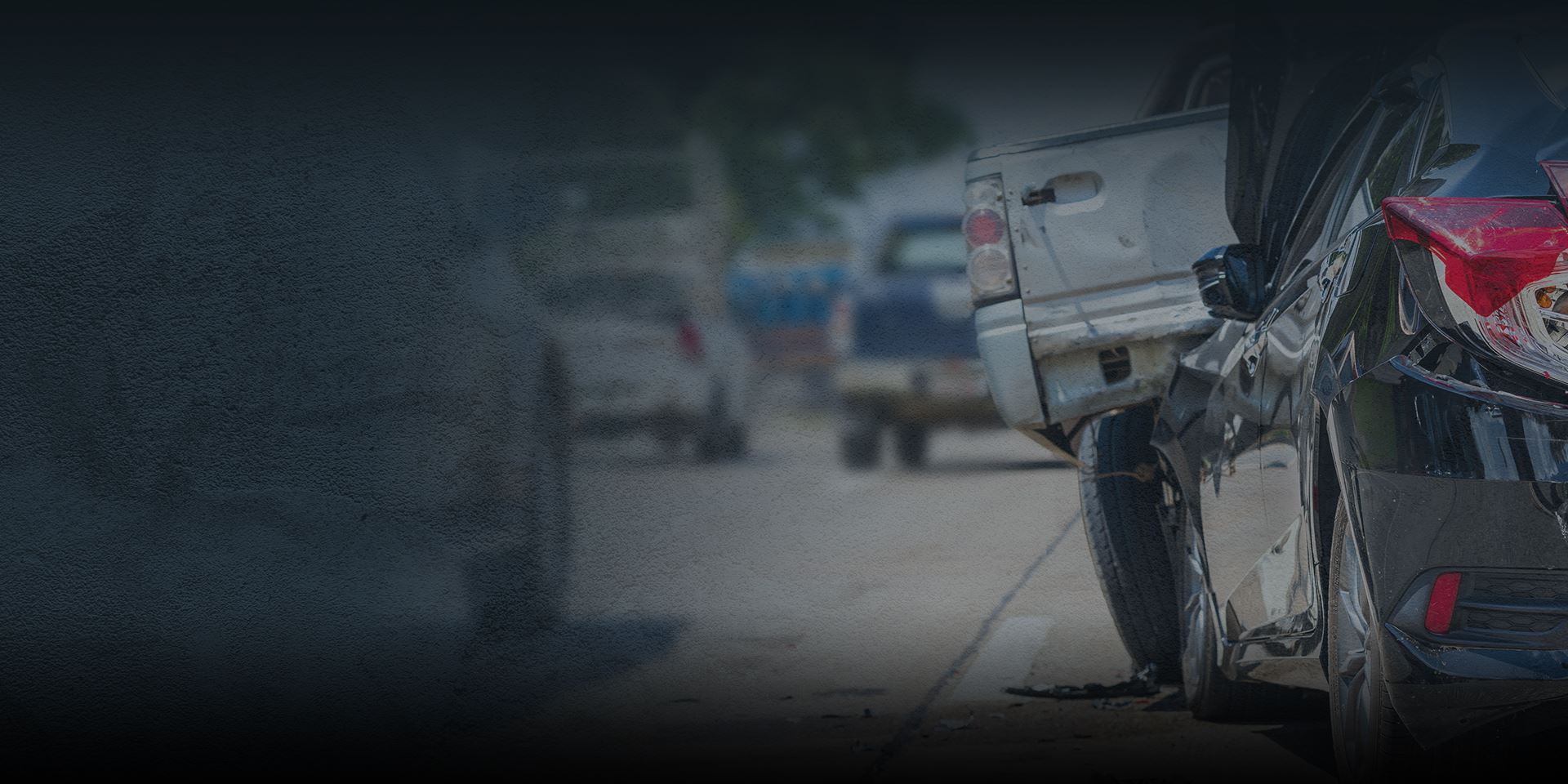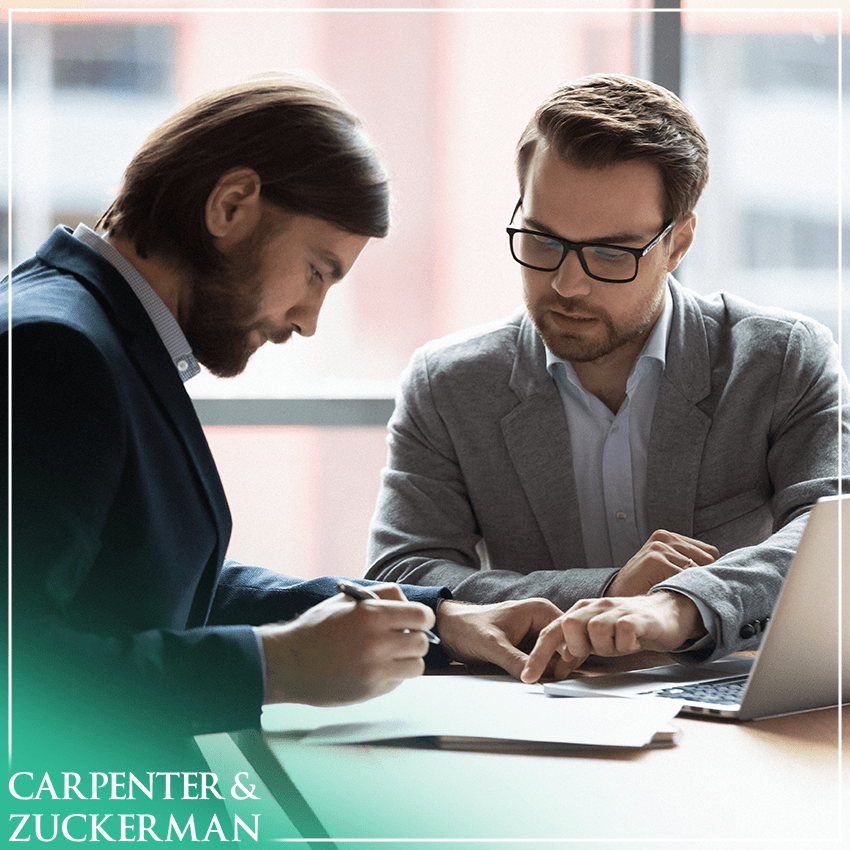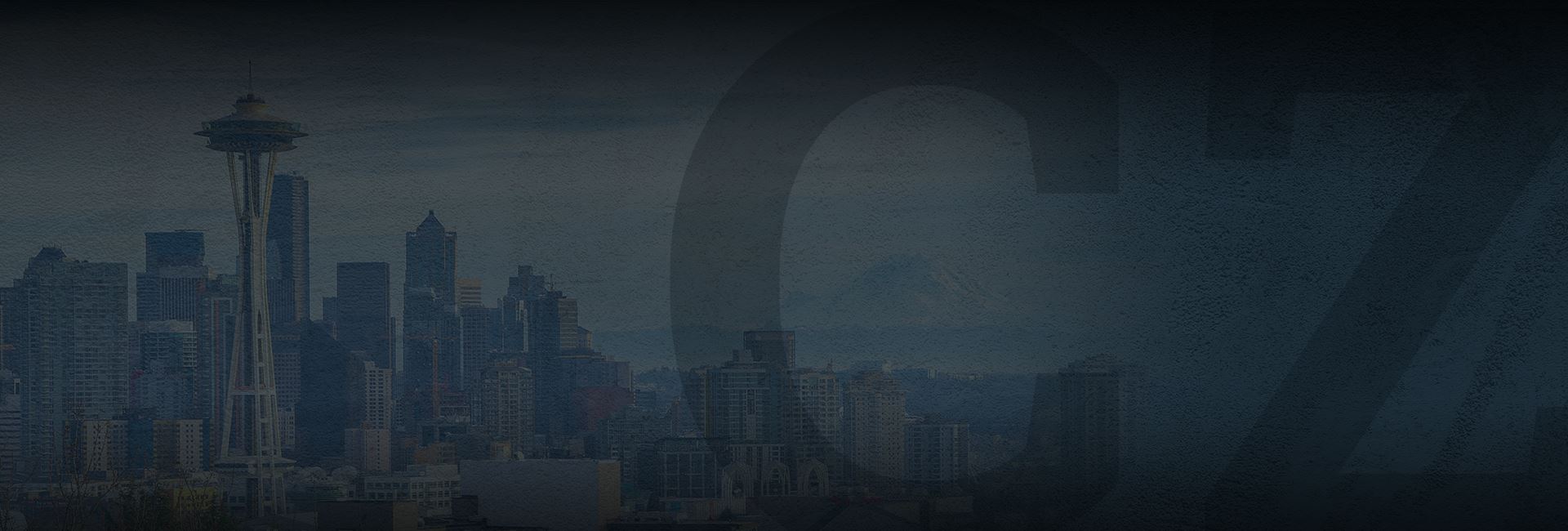
Seattle Car Accident Lawyer
Seattle Car Accident Attorneys
Experienced and Aggressive Representation for Victims of Car Accidents in Washington
At Carpenter & Zuckerman, we understand the physical and emotional pain of being injured in a car accident due to another person's negligence. Our experienced Seattle car accident attorneys work hard to help you navigate the process of filing a claim or lawsuit. We strive to provide compassionate legal representation as you go through this challenging time, seeking justice and fair compensation for your injuries.
With years of experience handling car accident cases throughout Washington, you can trust us to fight for your rights every step of the way. We can review your case and discuss your legal options with you. There is no obligation to hire us, and we will not charge you any fees unless we recover compensation on your behalf.
Don't let the insurance companies take advantage of you. Contact our Seattle car accident attorneys at Carpenter & Zuckerman today to learn more about your legal rights.
To schedule a free consultation, call us at (425) 585-4009. We represent clients throughout Washington state, including Seattle, Tacoma, Yakima, Bellevue, Spokane, Wenatchee, and Pierce County.

-
$2.1 Million Hit-and-Run Accident
-
$10.5 Million Distracted Driving Accident
-
$1.3 Million Spinal Injury
Common Causes of Car Accidents in WashinGton
If a negligent driver injured you in an accident, you might be unsure whether or not you were at fault and to what degree. While making a reliable determination as to who is at fault is impossible without knowing the details and circumstances of your accident, several types of accidents are often the fault of another motorist.
Some of these include:
- Rear-end collisions occur when a car behind you does not have enough time to stop or slow down because they were following your vehicle too closely. This type of accident is usually caused by someone tailgating or not paying attention to traffic flow.
- Head-on collisions happen when two vehicles traveling in opposite directions collide. These are often caused by someone drifting into the opposing travel lane due to distraction, drowsiness, intoxication, or simply failing to yield the right of way.
- T-bone or side impact collisions occur when a vehicle hits another at an angle from one side. For example, if one car runs a red light and t-bones another vehicle that is legally going through the intersection. These accidents are often attributed to reckless driving behavior like running stop signs and red lights. Slamming on the breaks suddenly in adverse weather conditions can also lead to a t-bone.
- Sideswipes often occur when drivers fail to check their blind spots before merging or changing lanes properly. This type of crash can cause significant property damage and bodily injury.
- Multi-vehicle accidents involve three or more vehicles and often occur on highways or during adverse weather conditions. One initial collision can set off a chain reaction involving multiple vehicles.
- Hit-and-run accidents occur when a driver involved in a collision leaves the scene without exchanging information or providing assistance to the injured parties. It is illegal in most jurisdictions.
- Rollover accidents happen when a vehicle overturns onto its roof or side. These accidents are more likely to occur with taller vehicles, such as SUVs or trucks, during sharp turns or collisions.
- Pedestrian or bicycle accidents involve pedestrians or cyclists when a vehicle collides with someone walking or biking on or near the road.
Car accidents can occur for a variety of reasons, and they often result from a combination of factors. Some of the common causes of car accidents include:
- Distracted Driving: One of the leading causes of car accidents is distracted driving, which involves activities like texting, talking on the phone, eating, adjusting the radio, or using navigation systems while driving. These distractions divert a driver's attention away from the road, increasing the risk of accidents.
- Speeding: Driving at speeds higher than the posted speed limits or too fast for road conditions reduces a driver's ability to react to sudden changes in traffic or road situations. Speeding is a significant contributor to accidents and their severity.
- Impaired Driving: Driving under the influence of alcohol or drugs impairs a driver's judgment, reaction time, and coordination, making them more likely to be involved in accidents. This includes both illegal substances and certain prescription medications that can impair driving abilities.
- Reckless Driving: Reckless driving behaviors like aggressive tailgating, weaving in and out of traffic, and disregarding traffic signals and signs significantly increase the risk of accidents.
- Fatigue: Driving while fatigued or drowsy can impair a driver's focus and reaction time, leading to accidents. Fatigue-related accidents are especially common during late-night or long-distance driving.
- Running Red Lights and Stop Signs: Disobeying traffic signals and signs can lead to intersection accidents, where vehicles collide because one driver failed to yield the right-of-way.
- Weather Conditions: Adverse weather conditions such as rain, snow, ice, fog, and heavy winds can reduce visibility and road traction, making it more challenging to control a vehicle and increasing the likelihood of accidents.
- Poor Road Conditions: Roads with potholes, debris, uneven surfaces, or inadequate signage can contribute to accidents. Lack of proper maintenance can create hazards for drivers.
- Mechanical Failures: Vehicle malfunctions, such as brake failure, tire blowouts, or engine problems, can cause accidents. Regular vehicle maintenance is essential to prevent these issues.
- Inexperienced Drivers: Novice drivers, particularly teenagers, may lack the experience and skills to handle challenging driving situations, increasing the likelihood of accidents.
- Tailgating: Following the vehicle in front too closely reduces the reaction time in case of sudden stops, increasing the risk of rear-end collisions.
- Aggressive Driving: Aggressive behaviors like road rage, excessive honking, and aggressive lane changes can escalate situations and lead to accidents.
- Poor Visibility: Inadequate visibility due to factors like fog, rain, or nighttime driving without proper lighting can hinder a driver's ability to see other vehicles and hazards.
- Wildlife and Obstacles: Collisions with animals or objects on the road, such as fallen debris or trees, can lead to accidents, particularly in rural areas.
If you were involved in any of these types of accidents, or another type that was caused by a driver's negligence, then you may be entitled to compensation for your losses, such as medical expenses and lost wages associated with your treatment. Contact the Seattle car accident lawyers at Carpenter & Zuckerman to discuss whether or not your case is eligible for compensation during your free initial consultation.
-
 Maximum Compensation
Maximum Compensation -
 Depth of Experience
Depth of Experience -
 Free Consultations
Free Consultations
What Kind of Damages Can I Recover After a Car Accident in Washington?
Economic damages compensate for any financial losses resulting directly from the crash. If the value of a loss in your accident can be quantified, it will likely be economic damage.
These can include medical expenses such as:
- Hospital bills
- Prescription medications
- Rehabilitative care
- Lost wages or loss of earning capacity due to an inability to work
- property damage costs associated with repairing or replacing your vehicle
- Specialized equipment to accommodate a disability
Non-economic damages cover intangible harm like pain and suffering, emotional distress, loss of enjoyment in life activities, or reduced physical ability caused by the crash. These losses are more difficult to calculate due to their subjective nature. However, they can still play an essential role in helping victims recoup from a traumatic experience like a car accident.
Many states also offer an opportunity to collect punitive damages; however, Washington is not among them.
Washington Car Accident Laws
Accidents that result in injury, death, or property damage over a certain amount must be reported to the Washington State Department of Transportation (WSDOT) within a specified time frame.
Washington follows a "fault" system, where the person responsible for causing the accident is typically responsible for damages. This means the at-fault driver's insurance may be responsible for covering medical expenses and property damage.
All drivers in the state are required to carry liability insurance with minimum coverage limits. As of 2024, these minimums were $25,000 for bodily injury or death per person, $50,000 for bodily injury or death per accident involving multiple people, and $10,000 for property damage.
There is a time limit, or statute of limitations, for filing a lawsuit after a car accident. In Washington, this is typically three years from the date of the accident for personal injury claims, and three years from the discovery of property damage.
Who is Liable for a Car Accident?
In Washington state, liability for a car accident typically rests on the party or parties deemed responsible for causing the accident. Here are the primary factors that determine liability:
- Negligence: The most common basis for liability in car accidents is negligence. If a driver fails to exercise reasonable care and this failure leads to an accident, they may be held liable for resulting damages. Examples of negligence include speeding, running a red light, distracted driving, or drunk driving.
- Vicarious Liability: In some cases, liability can extend beyond the driver to include other parties. Employers, for example, can be held vicariously liable for the actions of their employees if the accident occurred within the scope of employment. This is often applicable in cases involving commercial vehicles or company cars.
- Product Liability: If a car accident is caused or worsened by a defective vehicle or its parts, the manufacturer or distributor of the defective product may be held liable under product liability laws.
- Governmental Liability: In rare cases, liability may be attributed to government entities if the accident was caused by dangerous road conditions or inadequate signage that the government should have addressed.
- Joint and Several Liability: Washington state follows principles of joint and several liability. This means that if multiple parties are found liable for an accident, each party can be held responsible for the full amount of damages, regardless of their individual degree of fault. However, this is subject to limits and percentages of fault determined by the court.
Determining liability in a car accident can be complex and often requires an investigation into the specific circumstances of the accident. Insurance companies, legal professionals, and sometimes law enforcement play roles in assessing and assigning liability based on evidence such as witness statements, police reports, and expert opinions.
How Does Comparative Fault Affect My Case?
It is important to remember that Washington is a comparative fault state, which may impact the value of the damages you are entitled to. Comparative negligence is a legal doctrine that compares each party's negligence in an accident or injury. It determines who should or should not be held liable for damages related to injury, death, and property damage. Comparative negligence works by assigning a percentage of fault to each party based on the degree to which they were at fault for an accident and reducing the overall recoverable compensation accordingly.
For example, if you do not stop completely at a stop sign and a car is speeding and driving recklessly through the intersection and hits you, you would likely be found partially at fault for the accident. For the sake of providing a complete example, we will say that the court finds you 20% liable. In this case, you would only be entitled to collect 80% of the available compensation.
Our car accident attorneys in Seattle can help you prove that the other driver is liable for your injuries in order to secure the maximum amount of compensation possible. Contact Carpenter & Zuckerman today to schedule a free consultation.
FREQUENTLY ASKED QUESTIONS
-
Should I speak with the other party's insurer?No, we will take care of that. They will likely offer you a lower settlement than you deserve. Further, you run the risk of saying something that an insurer can use against you, leading to a diminished claim.
-
Can I seek property damages in my car accident case?Yes.
-
Can a third party be responsible for my injuries in a car accident?Yes, if they are responsible for causing the accident. For example, if a defective part leads to an accident, you may be able to seek compensation from the part's manufacturer.

How Do I Prove Negligence in a Car Accident Case?
To prove negligence in a car accident case, you must show that the other driver owed you a duty of care, that the driver breached that duty, the breach caused your injuries, and that you suffered harm.
- Duty of care is a legal obligation that all drivers owe to other drivers on the road. This means that drivers must drive safely and avoid doing anything that could cause an accident, always keeping the safety of other motorists in mind.
- Breach of duty occurs when a driver fails to uphold their duty of care. This can happen in many ways, such as speeding, running a red light, or driving while intoxicated.
- Causation is the link between the other driver's breach of duty and your injuries. To prove causation, you must show that the other driver's actions were the direct cause of your injuries.
- Damages are the losses that you suffered as a result of the accident. This can include medical expenses, lost wages, and pain and suffering.
If you can prove all four elements of negligence, you may be able to recover compensation for your injuries. Let our experienced car accident lawyers in Seattle handle all the details of your claim with dedication and care.
What Kind of Evidence Do I Need to Win My Car Accident Lawsuit?
If you have been involved in a car accident and are looking to pursue legal action, it is crucial to understand what type of evidence you need to build a strong case.
You will want to provide as much evidence as possible that proves fault or negligence by the person or company responsible for your accident.
This could include documentation such as:
- Police reports
- Witness statements
- Medical records
- Photographs of the scene
You should also keep detailed records of any expenses incurred due to the accident, such as lost wages, property damage, and medical bills. Evidence demonstrating financial loss can help strengthen your case and will be essential to the damages element we discussed above.
Knowing any applicable laws or regulations related to your incident is also essential. Was there a law broken? Were safety protocols disregarded?
At Carpenter & Zuckerman, we understand that every accident is unique. Our Seattle car accident lawyers can work with you one-on-one to review all aspects of your situation and devise an effective strategy for pursuing justice on your behalf.

The Opinions That Matter Most
-
“They worked tremendously fast in settling my case” - Lupita E.
-
“They were able to get more than double what the first firm was able to get for me.” - Leah D.
Washington Lawyers Fighting for Compensation on Your Behalf
If you or someone you love has been injured in a car accident due to negligence, it is essential to know your rights. Our Seattle car accident lawyers can help you evaluate your options and pursue compensation for the losses you have experienced. From investigating an accident to negotiating with insurance companies, we can provide the legal guidance and representation you need to recover from a car accident. Contact our office today for more information about how we can assist with your case.
To schedule a free initial consultation, call us at (425) 585-4009 or contact us online today.




